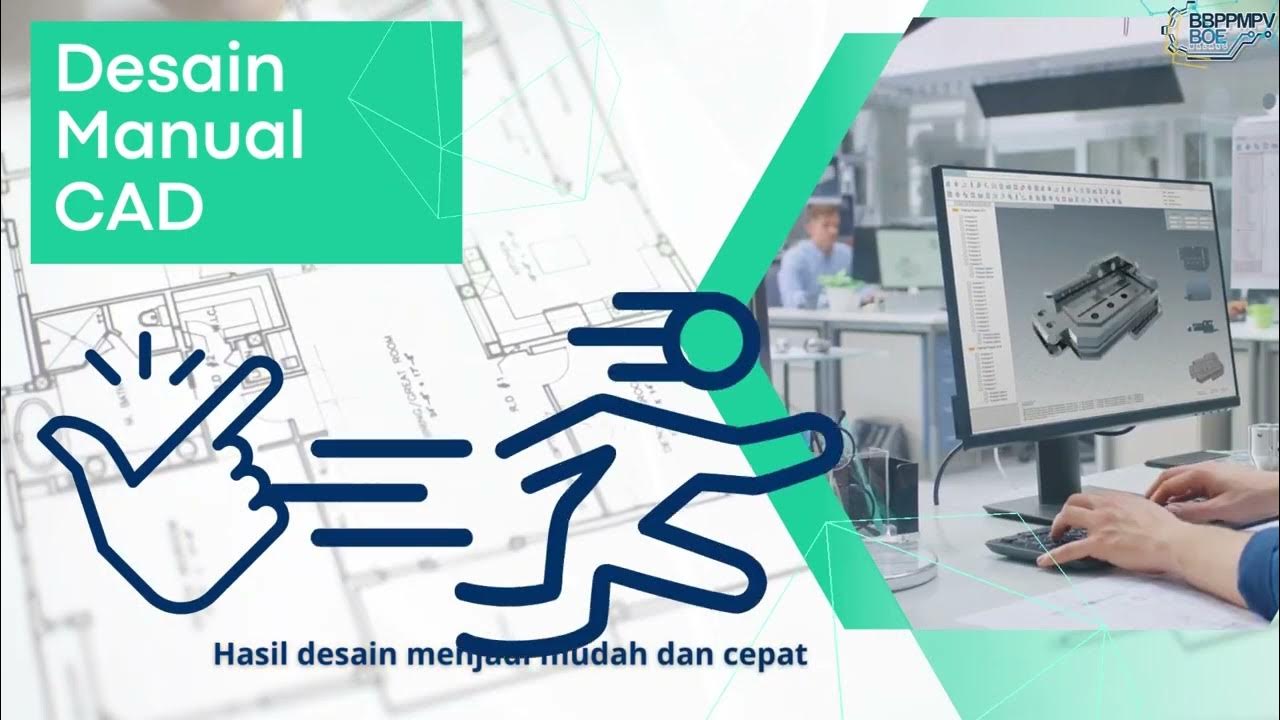Tantangan Kewirausahaan di Era 4.0
Summary
TLDRThis video explores the challenges of entrepreneurship in the era of Industry 4.0, highlighting the evolution from earlier industrial revolutions to the current technological integration. It covers key concepts such as automation, big data, AI, IoT, and cloud computing, illustrating their transformative impact on industries and businesses. The video discusses both the positive effects, like increased efficiency and job creation, and the negative impacts, including cybersecurity risks and environmental concerns. It emphasizes the importance of digital knowledge for businesses to thrive, compete globally, and ensure security in a rapidly evolving digital landscape.
Takeaways
- 😀 Industry 4.0 is defined by the integration of digital and physical technologies like AI, IoT, and digital manufacturing, transforming production and daily life.
- 😀 The first industrial revolution was marked by the use of steam engines to replace human and animal labor in production processes.
- 😀 The second industrial revolution introduced electricity, automation, and petrochemical technology, increasing production efficiency and lowering costs.
- 😀 The third industrial revolution focused on information technology, including computers and the internet, which shifted economies to knowledge-based systems.
- 😀 Industry 4.0 involves smart factories, where systems are interconnected in real-time to optimize production through automation and digital technology.
- 😀 Key technologies of Industry 4.0 include automation, big data, cloud computing, autonomous systems, IoT, AI, and data management.
- 😀 Automation increases efficiency in industries by replacing human labor with machines that perform tasks faster and more accurately.
- 😀 Big data analysis helps businesses understand consumer behavior and optimize services, as seen in Indonesian banks and e-commerce platforms.
- 😀 The use of AI in customer service, such as chatbots, helps companies provide quicker and more efficient service to their customers.
- 😀 Industry 4.0 creates new job opportunities for skilled workers who can manage and operate advanced technologies, even as some traditional jobs are automated.
- 😀 Digital skills are crucial in modern business, enabling companies to reach global markets, innovate products, and make data-driven decisions.
Q & A
What is Industry 4.0 and how does it differ from previous industrial revolutions?
-Industry 4.0 refers to the current era of technological integration in industries, marked by advancements such as artificial intelligence, the Internet of Things, and digital manufacturing. It differs from earlier revolutions by focusing on real-time connections between machines and systems, enabling smarter, more efficient production processes.
What characterizes the first industrial revolution?
-The first industrial revolution was defined by the use of steam engines to replace manual labor and animal power, transitioning production from homes to large factories and significantly increasing production capacity.
How did the second industrial revolution change manufacturing processes?
-The second industrial revolution was driven by the use of electricity, automatic machinery, and petrochemical-based technologies, allowing for greater production efficiency and enabling mass production of goods at lower costs.
What were the key advancements during the third industrial revolution?
-The third industrial revolution saw the rise of information technology, including the development of computers, the internet, and digital technologies. This revolution moved economies toward knowledge-based industries where information and technology played a central role.
What technologies define Industry 4.0?
-Key technologies in Industry 4.0 include automation, big data, cloud computing, autonomous systems, the Internet of Things (IoT), data management, and artificial intelligence (AI). These technologies help create a more interconnected, efficient, and adaptable industrial environment.
What is the impact of automation in Industry 4.0?
-Automation in Industry 4.0 allows machines and systems to carry out tasks that previously required human intervention, significantly increasing efficiency and speed in production processes, as seen in companies like PT Toyota.
What role does big data play in Industry 4.0?
-Big data involves processing vast amounts of complex data to extract valuable insights. In Industry 4.0, companies, such as large banks and e-commerce businesses, use big data to analyze customer behavior and transactions, helping to improve services and customer engagement.
What is AI's role in enhancing customer service in the digital era?
-AI plays a significant role in improving customer service by enabling systems like chatbots to provide faster, more efficient responses to customer inquiries. This reduces the need for human intervention and enhances user experience.
What are the potential negative environmental impacts of Industry 4.0?
-One of the negative environmental impacts of Industry 4.0 is the pollution and waste produced by industrial machines. These by-products can be difficult to process and may harm the environment, emphasizing the importance of sustainable practices in manufacturing.
Why is it important to study digital skills in modern business?
-Studying digital skills is crucial for modern businesses as it allows them to interact more effectively with customers, streamline operations, measure campaign success, and create innovative products and services. Digital tools enable businesses to compete globally and adapt to changing market conditions.
Outlines

This section is available to paid users only. Please upgrade to access this part.
Upgrade NowMindmap

This section is available to paid users only. Please upgrade to access this part.
Upgrade NowKeywords

This section is available to paid users only. Please upgrade to access this part.
Upgrade NowHighlights

This section is available to paid users only. Please upgrade to access this part.
Upgrade NowTranscripts

This section is available to paid users only. Please upgrade to access this part.
Upgrade Now5.0 / 5 (0 votes)





